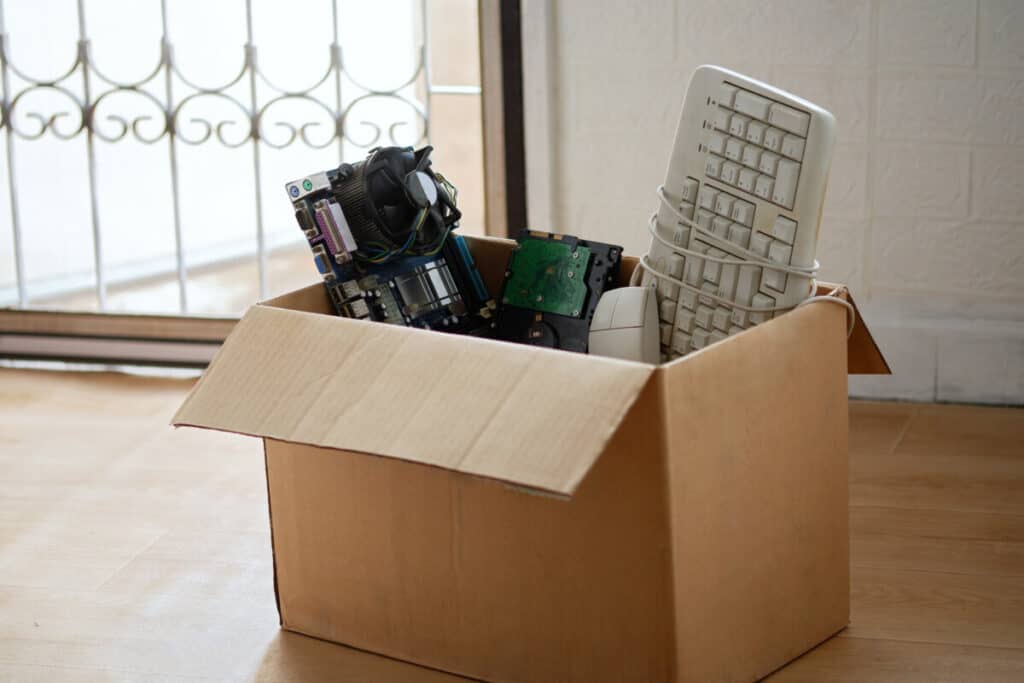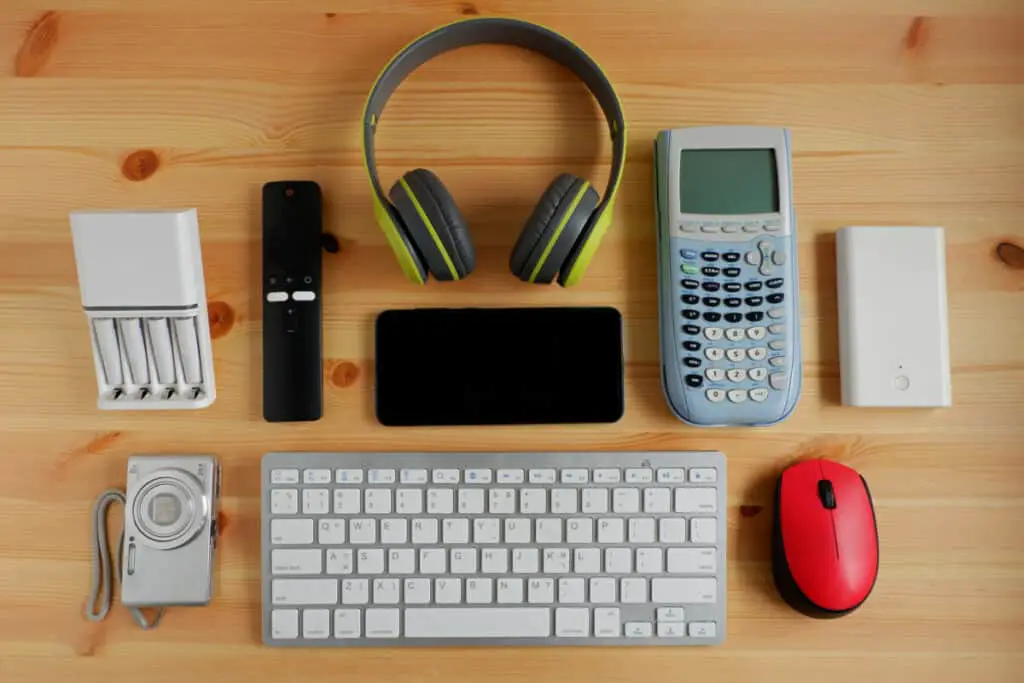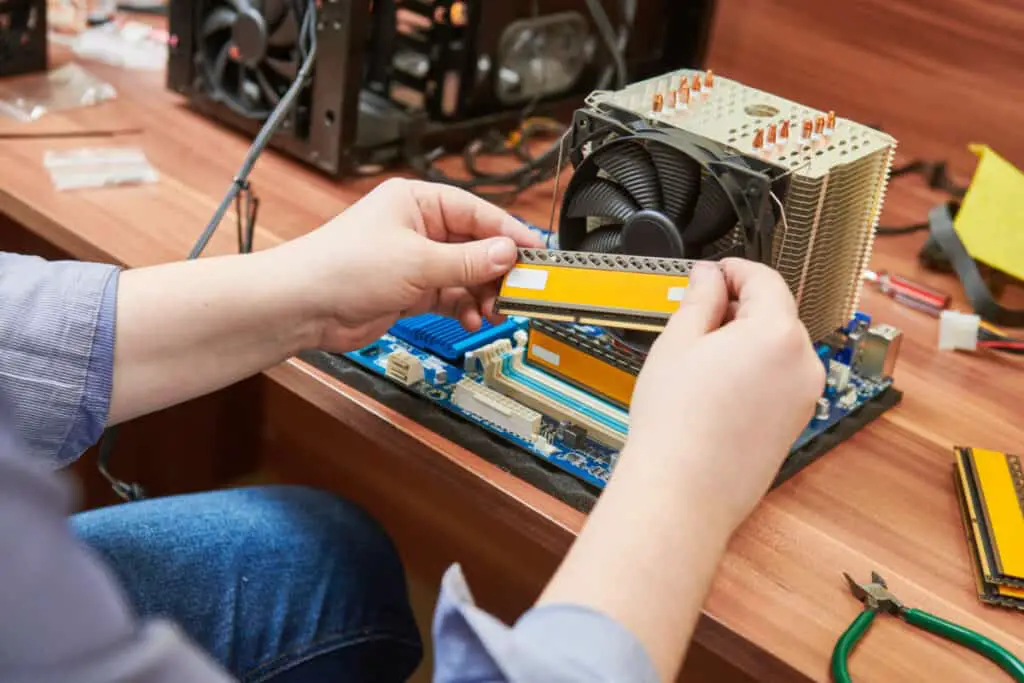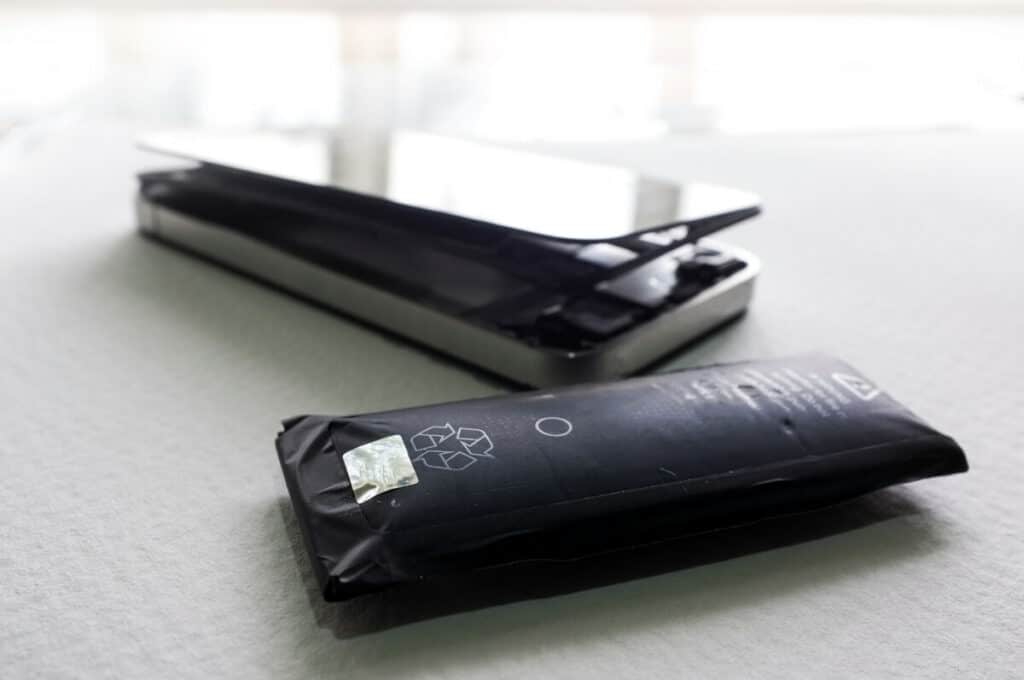
In modern society, everyone will have some electronic waste. Old phones, game consoles, computers, broken laptops, microwaves, toasters, and radios can clutter desk drawers and garages. Since they cannot be safely thrown away, how can they be recycled?
Old electronics can be safely brought to recycling centers by many tech repair shops, Best Buy or other electronics chains, and by individuals. Electronics can also be upcycled, with individual parts reused and others brought to recycling centers. Tech professionals can help.
All electronics can and should be recycled, but some can be dangerous to take apart at home! Avoid causing fires, and keep reading below to learn more about safely recycling old electronics.
The Basics of Recycling Old Electronics

Rule #1 of recycling should be obvious. Never throw your electronics away! Everything can be recycled or brought to a recycling center. Electronics hold environmental contaminants, but they also contain valuable and hard-to-replace materials that can be reused almost infinitely.
Check With Your Local Techies and Charities
That electronic clutter in your basement might be exactly what your local college student needs to finish a project. You’d be helping them out by donating it, and they would help you by disposing of everything.
Additionally, many neighborhoods have a program where old electronics are upcycled and repaired so they can be donated to people who need them. Shelters, refugee aid, foster children, veterans, and retirement homes are just a few of the groups that could end up using your old electronics after just a few repairs. Ask around to see if these programs exist near you, or if an individual collects donations for repair.
Look On Earth911
Almost any article, webpage, or post about recycling electronics will redirect you to Earth911. That’s because the Earth911 page is able to help you locate a recycling center near your home that accept the item you’d like to recycle. Giant TVs, copy machines, microwaves, and batteries are all on there.
You might be shocked at all the recycling options you find on there! Some stores never advertise recycling services, and others are hiding in plain sight. Go explore and see what you find.
Many Electronics Stores Accept Old Electronics For Recycling
The EPA has a list of electronics chains that accept some old electronics for recycling, but you should check out the sites for chains near you, too. Asurion, uBreakiFix, and local shops will all accept various types of tech. They’ll either refurbish things themselves or process them appropriately to recycling centers.
Recycling Quickly is Safer Than Keeping Old Electronics At Home
Besides being better for the environment than throwing things, away, this is actually important for your personal safety. An old laptop or phone with a swollen battery could easily start a deadly fire if it gets punctured in the trash or overheated in the garage. Other electronics, like microwaves, can deliver a deadly shock or toxins even after they’re unplugged, so they shouldn’t be available for curious kids to play with.
Additionally, large electronics like old TVs can either choke your power bill or turn into giant obstacles if you leave them unplugged. They can also be dangerous for small children who find them since they can do major damage if they fall.
Recycling electronics reduces clutter in your home, and it keeps the occupants safe.
Where Can I Take Old Electronics To Have Them Recycled?
| Electronic | Locations for Recycling, Donation, or Disposal | Important Considerations |
| Televisions | Hazardous Waste Collection Programs, Recycling Centers, Best Buy, or consider donating it. | Check if the TV is LCD or CRT before searching for a location to recycle. |
| Cell Phones | Asurion Repair Centers, uBreakiFix, Home Depot, Target, Sprint, Staples, Lowe’s, Recycling Centers, and other local or chain tech repair stores | See if anyone in your neighborhood is looking for phones to upcycle or repair. |
| Microwaves | Recycling Centers and Best Buy locations | See if electronics stores near you are interested in your microwave! |
| Laptop Computers | Staples, Best Buy, uBreakiFix, Asurion Repair Centers, Recycling Centers, Hazardous Waste Disposal, other chain, and local repair centers, and some schools | Ask about charities accepting donations for repair, or donate to someone who repairs electronics. |
| Tablets | The Apple Recycling Program, Asurion Repair Centers, uBreakiFix, Best Buy, Staples, Recycling Centers, Hazardous Waste Disposal, and local tech repair stores | Ask about local donation needs and the repairability of your tablet before recycling |
| VCR’s | Best Buy, Hazardous Waste Facilities, All Green drop-off locations, and VCR/DVD player repair locations | See if you can sell or donate it before recycling it! Some people are still looking for these, even if they’re broken. |
| DVD Players | Best Buy, Savers, some tech repair stores, and hazardous waste recycling centers | See if you can sell or donate it before recycling it! These are hard to find. |
| Desktop Computers | Best Buy, Staples, Deseret Industries, Asurion Repair Centers, uBreakiFix, local tech repair centers, and Hazardous Waste Recycling Centers | See if anyone in your neighborhood is looking for old computers to upcycle or repair |
Why Is Recycling Electronics So Important?

Why is recycling electronics so important? Does it make that much of a difference to recycle a single cell phone instead of tossing it in the trash? Will it really matter to anyone if you donate your fifteen-year-old computer instead of leaving it in your garage to collect dust?
It does make a difference, and it will matter in the short and long term.
Old Electronics Contain Rare and Hard-to-Replace Materials
Old electronics contain materials like gold, beryllium oxide, silver, copper, and other precious resources that are in limited supply. This is why major electronic chains are so eager to help with recycling and collecting old electronics. Yes, it helps their public relations, but it also saves them a lot of money to reuse what they can instead of starting from scratch!
Recycling old electronics reduces the need for new materials like plastics, precious metals, and other rare resources, leading to lower prices and less environmental strain.
Recycling Keeps Hazardous Waste Out of the Water Supply
Nobody wants to have mercury leaching into their groundwater. Other metals and chemicals are no better. Recycling electronic waste keeps these chemicals and nasty materials out of the earth and landfills. Since you’re one of the people who live on Earth, and who probably drinks water and eats food from the area near these landfills, this is a direct benefit to you.
Recycling Electronics Keeps Your House Free of Dangerous Situations
If you have a kid in your house who likes to tinker, it is doubly important to get dangerous electronics out of your home and into a recycling center. Benign clutter can turn deadly if your little techie decides to break open an old microwave or 1980s electronics.
Besides that, forgotten batteries are a real hazard for house fires. When those funny-looking puffy batteries burst, they catch fire and spew carcinogens. Skip the stress and take the leftover tech to somebody who will dispose of it safely.
What Can Be Safely Upcycled or Reused Before Recycling?

If you’re handy with electronics, you might appreciate all the available opportunities to upcycle old tech into useful new items. Use caution, of course, but there’s nothing wrong with giving something a new lease on life! You can always recycle it later, or recycle some parts while reusing others.
Upcycling Electronics
Online discussions and forums are full of ideas for things like upcycling laptops, upcycling old desktop computer parts, and even antique toasters! Some things take a little bit of experience or help since many electronics can contain hazardous environmental waste or retain a charge, but that doesn’t mean they can’t be reused.
Some electronics that can be carefully upcycled include:
- Laptops, with experience or help
- Desktop Computers, with experience or help
- DVDs
- Record Disks
- Cell Phones, with experience
- Old Radios, with experience
Repurposing Electronics
Security cameras can be expensive. You can cut down on the cost by using an old cell phone or an old webcam instead! With a little bit of tech know-how, you can save some money and reduce waste. Parts that weren’t used can be recycled immediately.
Old computers can be used to play music, teach your kids or other computer beginners how to program without risking expensive electronics, make a new router, make a home theater, play old DVDs or Blu-ray disks on a TV, or become an emergency backup for work or school.
Old MP3 players, iPods, or other media players can be used as portable drives. Some of them have pretty respectable amounts of storage available!
Rehoming or Selling Electronics
In addition to upcycling, people are always seeking out old electronics that could qualify as antiques. Some people become very attached to their old toasters, vacuums, or radios, and they will pay a lot of money for a part that could keep them running longer. Other people have wedding videos or other precious memories on cassette tapes or other media that can only be played using specific devices.
Making Art Out Of Electronics Parts
This is something that should be done with caution, but it is popular for artists or crafters to make jewelry, home decor, or new items out of electronics. Remember that many electronics contain chemicals that can be health hazards, so everything should be properly sealed before being worn or used around the house, but this can be a fun way to reuse some electronics before recycling them!
Items that lend themselves well to this include CDs, DVDs, records, small electronics parts, and even old computer monitors. We will once again emphasize that caution needs to be used since some of these parts contain serious toxins, but if you’ve gotten the go-ahead from your local tech repair expert, have fun with your crafting!
CDs and records are particularly popular right now for home decor since they can make cute plant stands, suncatchers, wind chimes, or even be used as they are for wall decorations.
If you’re not sure about the safety of those electronics, you can stick with crafty ideas like making old-fashioned blenders or mixers into cute plant pots or lamps. Just make sure they’re unplugged and won’t hold a charge.
What Electronics Are Dangerous to Upcycle or Keep At Home?

Some items are not worth taking apart on your own unless you’re serious about tech and have safety precautions available. The dangerous tech that should be left to professionals or recycled immediately includes:
- Any laptop or phone battery
- Microwaves
- Old Televisions
- Monitors and laptop screens
- Any old electronics that could contain beryllium oxide
The good news is that recycling centers and hazardous waste disposal centers are prepared for these situations! When in doubt, bring your electronics to the specialists.
Microwaves
Do not take apart microwaves at home. These should be recycled immediately when they break. If you’re going to donate it, the donation center will take care of it, but don’t try to fix a damaged microwave yourself. Even more importantly, do not let your children experiment with electronics by taking apart microwaves!
Microwaves contain parts that will hold a charge even after they have been unplugged from the wall. You can take apart an old microwave that is nowhere near a power source and still die from an electric shock. Unless you are extremely experienced, don’t risk this.
Microwaves also have parts that contain beryllium oxide. If you release it by mistake, this will give you a painful death by destroying your lungs.
The easy solution to these hazards is recycling the microwave. It will be out of your hands and out of your home, and it can be disposed of by trained professionals.
Batteries
Batteries are probably the biggest danger to anyone who tries to upcycle or repair electronics at home, as well as being a major reason why laptops and cell phones should always be recycled.
This is because some batteries can explode violently. The chemicals contained in these batteries are intensely carcinogenic, so this isn’t just an explosion, it’s a cancer-causing explosion. Don’t play with puffy batteries.
This is why batteries should be left to tech experts or recycled immediately. Tossing batteries in the trash or forgetting about them for years, even if they’re not in a hot garage or attic, leaves you and your home at risk of a dangerous fire.
Related Topics:
If you like the article above, here are some other similar articles you should check out!
